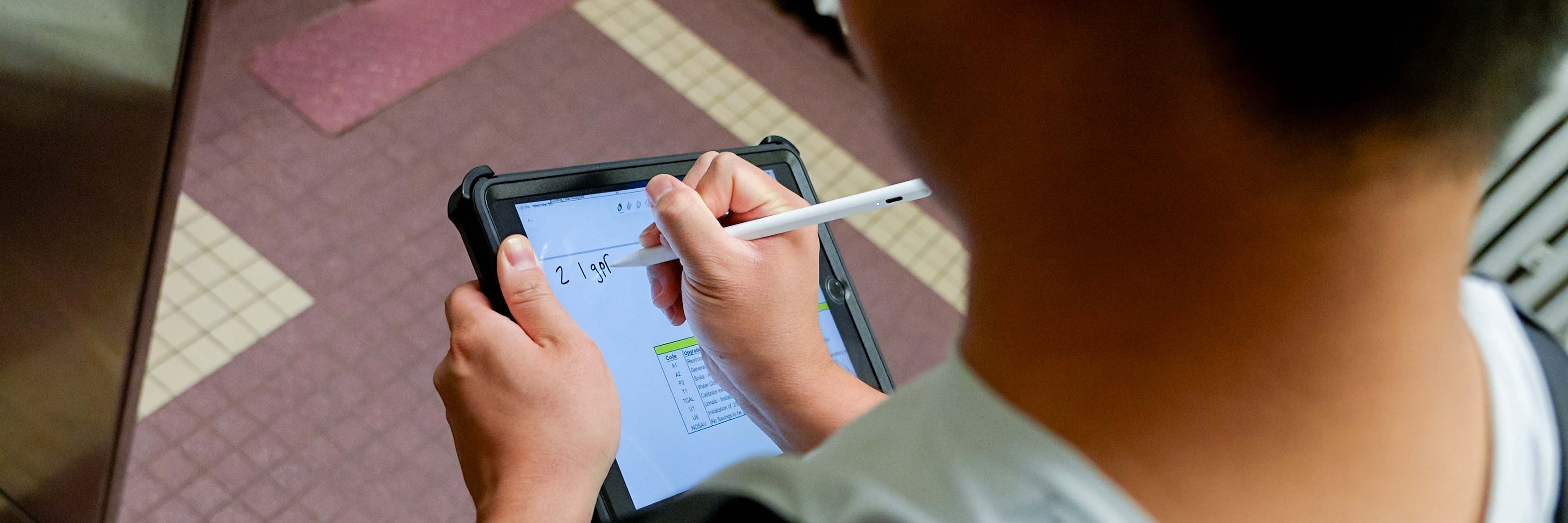Sustainable Systems Science (S3) Major
Explore the Sustainable Systems Science Degree
02:26
Sustainable Systems Science (S3)
A Future-Forward Approach to Sustainability and Innovation
The Sustainable Systems Science major prepares students to integrate sustainability principles with engineering, business, and environmental science to create data-driven solutions for industries, governments, and research institutions.
Graduates gain expertise in life cycle assessment, material flow analysis, and sustainable design, positioning them for high-demand careers in sustainability consulting, industrial ecology, and environmental analysis.
Challenge yourself
Why choose Sustainable Systems Science?
The Sustainable Systems Science (S3) major prepares you to tackle today’s most urgent environmental and economic challenges. By combining engineering, business, environmental science, and data analytics, this interdisciplinary program equips you with the tools to design real-world sustainability solutions across industries, government, research, and communities.
- First-of-Its-Kind in the Region — Join an innovative program at the forefront of sustainability science.
- Skills for High-Demand Careers — Build expertise aligned with fast-growing fields like sustainability, industrial ecology, environmental analytics, and systems design.
- Real-World Impact — Learn how to reduce environmental footprints, improve industrial efficiency, and develop sustainable systems for the future.
Students develop sustainable impact solutions for a greener campus
01:31
Career opportunities
Graduates of the Sustainable Systems Science major enter high-growth fields, such as:
Sustainability Specialists
Promote eco-friendly practices to ensure that a project meets or exceeds environmental goals. Sustainability specialists deal with concerns like managing waste, reducing carbon emissions and other environmental impacts, implementing green procurement practices, and achieving energy efficiency.
Industrial
Ecologists
Uses principles of natural ecosystems to optimize industrial systems, making them more efficient and sustainable. Industrial ecologists analyze environmental impacts, develop strategies for waste reduction, and promote circular economies by applying knowledge from the physical and social sciences.
Environmental Scientists and Specialists
Conduct research or investigations to protect the environment or human health. Environmental scientists and specialists may collect, study, and report on data of air, food, water and other sources and then recommend action.
Job titles may include
Sustainability Consultant
Environmental Analyst
Sustainable Systems Analyst
Energy Manager
Sustainability Manager
Research Scientist in Sustainable Solutions
What you'll learn
This major goes beyond theory — students develop critical skills
The Sustainable Systems Science major equips students with the skills to drive real-world sustainability solutions in industries, government, and research. This program blends engineering, business, environmental science, and data analytics to tackle today’s most pressing environmental and economic challenges.
- Explore and interpret complex systems, focusing on how environmental, economic, technological, and social factors interact in real-world contexts.
- Analyze sustainability data to uncover patterns, relationships, and actionable insights.
- Evaluate environmental impacts using industry-standard tools such as Life Cycle Assessment and Material Flow Analysis.
- Develop science-based recommendations that support effective environmental and organizational decision-making.
- Design sustainable products, systems, and supply chains that meet ecological and economic performance goals.
Alumni Interviews
Graduates from the Department of Sustainable Biomaterials share their ongoing stories with us!
"I’d always had a passion for the natural world and conservation, but I was also drawn to engineering and technology. SBIO felt like the perfect way to merge those interests, while also supporting my mission to make the world a better place through sustainable materials and actions."
- Henry Wallace, 2023 B.S. Sustainability Alumni
Our Program

Learning
Small Class Sizes = Personal Connection
Our small class sizes provide an opportunity to our students to build more personal connections with our faculty. In addition, our advisors are available to help students by providing industry connections and career guidance throughout their time at Virginia Tech.
Student talking to employer

Career Ready
Industrial Connections
Our close collaboration with industry allows our students to find internships, Co-ops, and employment after graduation. Our extensive network includes major companies such as ... among many others.
Students getting hands on experience

Experiential Learning
Hands-On Experience
The best way to translate the knowledge obtained in the class to real life is to use them to solve real-life issues. Thus, all of our sustainable biomaterials students have a chance to be involved in hands-on projects even during their first-year including working in our research centers, undergraduate research in our chemistry labs, internal summer internships, and industry sponsored senior design projects.





